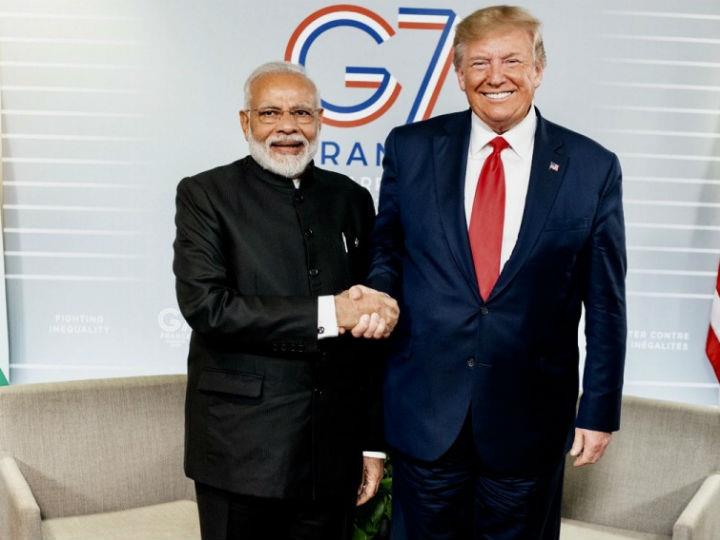by Hans Izaak*
Donald Trump has been forced to cancel a planned face-to-face summit of G7 leaders in June and now wants to host an expanded meeting in September dedicated to countering China, to which Vladimir Putin would be invited.
Trump revealed on Saturday that he had cancelled the June meeting, which he had billed as a symbol of the US ‘transitioning back to greatness, after the German chancellor, Angela Merkel, told him in a phone call that she saw the summit in Washington DC as a health risk.
Hundreds of security staff, journalists and officials also attend the two-day summits.
Reports suggest the call between Merkel and Trump on Thursday was stormy, ranging over German plans for the Nord Stream 2 gas pipeline, Hong Kong, and the potential health risks of a face-to-face summit.
Trump’s new plan, outlined to reporters on Saturday, is to host an expanded G7 meeting including Russia, Australia, South Korea and India, dedicated to building an alliance against China. The plan is likely to be controversial because Russia has been banned from Western-led summits since Putin annexion of Crimea in 2014, and is not seen as a natural ally in the defense of human rights in Hong Kong.
Merkel and the French president, Emmanuel Macron, will also be reluctant to provide Trump with a prestigious platform to set out his China strategy weeks before the US presidential election. The Republicans see a tough approach towards China as an election-winning formula, even though his likely Democrat challenger, Joe Biden, is also sharply critical of Beijing’s modern direction.
The G7 brings together the US, Japan, France, Germany, the UK, Canada and Italy.
Justifying the cancellation of the June meeting and his proposed new format, Trump said the group’s current makeup was ‘very outdated’ and does not properly represent ‘what’s going on in the world’.
He said he had not set a precise date for the new meeting, but suggested it might be around the time of the annual UN general assembly in New York, which is normally held in September, but there is no guarantee it will go ahead this year. The proposed “G11” meeting might also be held after the presidential election, he said.
Trump caught many capitals and White House officials by surprise on 20 May, when he tweeted: “Now that our Country is ‘Transitioning back to Greatness,’ I am considering rescheduling the G-7, on the same or similar date, in Washington, DC, at the legendary Camp David.
The other members are also beginning their comeback. It would be a great sign to all, normalization!”
It contradicted the US government’s previous announcement that the G7 meeting would be a teleconference as a result of the coronavirus pandemic.
The White House, however, confirmed within days that the meeting would be held on 25 and 26 June. It had originally been scheduled for 10 to 12 June at Camp David.
The Japanese foreign ministry had been reluctant for the prime minister, Shinzo Abe, to travel to Washington, in part because of the so-called Dominic Cummings effect.
Had Abe attended the summit, he would have been required either to quarantine himself for two weeks or take a Covid-19 test on his return. Officials told Japanese media they did not want Abe to be seen to be getting privileged treatment, and cited the backlash the UK prime minister, Boris Johnson, has faced for clearing his senior adviser of breaking UK quarantine rules.
Macron was also reported to be ambivalent about a face-to-face meeting in June, but Merkel’s spokesman broke the news that she could not guarantee her personal attendance.
European leaders are deeply critical of China’s intervention in Hong Kong, but the plan Trump set out to confront Beijing in a 10-minute address on Friday left many questions unanswered about the extent to which he is prepared to disengage the US economy from China or impose sanctions.
The EU has not yet supported sanctions, but a meeting of foreign ministers on Friday agreed that the language of a paper on China completed in early 2019 needed toughening.
The EU is also opposed to Trump’s decision to terminate
Washington’s membership of the World Health Organization, privately saying the US president had not even formulated a coherent reform agenda for the UN body, let alone given the WHO time to respond to any US proposal.
The UK is hosting a virtual coronavirus vaccine summit on 4 June intended to establish a global alliance and raise funds for research, and will hope the US decision to withdraw from the WHO does not dominate the event.
*International political journalist and author of the Dutch political book ‘De Patatbalie’ about the relation between media and politicians




 By: N. Peter Kramer
By: N. Peter Kramer
